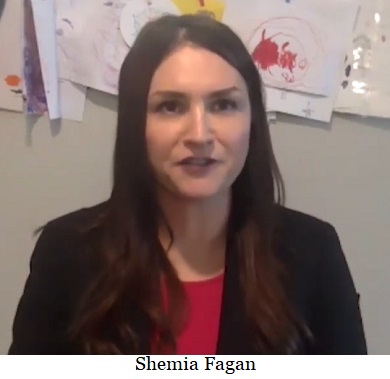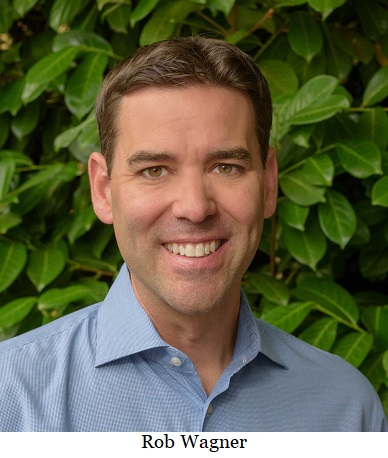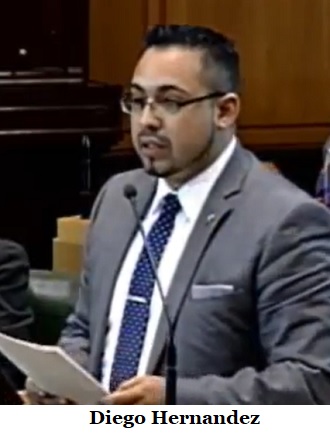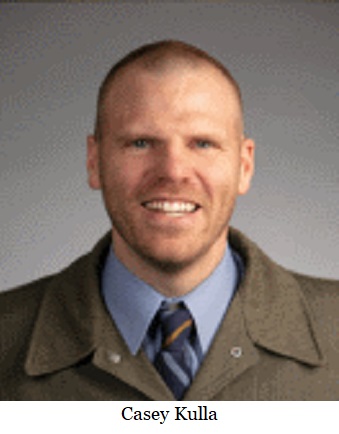
On this day, August 20, 2020, about 100 leftist demonstrators blocked traffic in Portland, vandalized an immigration building, set fires to dumpsters, and threw rocks and glass bottles at police. Police arrested three people.
 Post an Event
Post an Event
| Benton County Republicans’ Private Fundraising Event, “Bent-on Boots and Bling” with Trey Taylor |
| Friday, September 5, 2025 at 5:00 pm |
| Featuring Trey Taylor
Music Private Event
Friday, September 5, 2025 5:00-5:30 pm VIP Reception
5:30-8:00 pm Heavy Appetizers,
Auction, Concert
Red: $750 VIP Reception
Front Row Table Sponsor
White: $500 Table Sponsor
Blue: $50 per person
Limited Seating. Get Yours Now!!!
Support Local
Dress up: Bling, Cowboy, Patriotic Benton County Republican
FUNDRAISER
www.BentonGOP.org
Get your tickets today at:
https://www.bentongop.org/event-details/benton-county-republicans-fundraiser/form
About Trey:
Trey is the youngest African American Man in Country Music History. The Denver Post wrote
"It's impossible to miss his enthusiasm. With a fondness for cowboy boots, gaudy colors and dazzling jewelry, Trey Taylor could stand toe to toe with any of the Pop, Country or even Rap
contemporaries of his generation.“ |
| Trysting Tree Golf Club, 34028 NE Electric Rd., Corvallis |
There are some exceptions. Union teachers, for instance.
The Oregon Bureau of Labor and Industries is
providing answers to the question of employer vaccine mandates. BOLI is the state agency that addresses worker rights claims, discrimination and civil rights. The agency is directed by the elected labor commissioner, Val Hoyle.
According to the Oregon Bureau of Labor and Industries, the federal Equal Employment Opportunity Commission has released
guidance under federal law that makes it clear that employers may require workers to receive a COVID-19 vaccine – with limited exceptions. This is also true under Oregon law.
Employers cannot require COVID-19 vaccinations in the workplace if they employ specific types of workers or have contractual limitations. Workers may make requests for exemptions or accommodations due to disability or religion.
Most workplaces can require employees to get a COVID-19 vaccine, but some types of workers are exempt by law. Exempt workers include: people licensed or certified to provide health care, employees of a health care facility, a licensed health care provider or a clinical laboratory, firefighters, law enforcement officers, corrections officers, or parole and probation officers.
For employers with a unionized workforce, such as public school teachers and classified employees, a collective bargaining agreement could contain direct prohibitions on mandatory vaccines in the workplace. Although less common, individual employment contracts could present similar challenges.
In a stunningly bizarre combination of policies, teachers get in the front of the line for vaccines. However, this front-of-the-line position does not obligate them to return to the classroom. Further, though they get the vaccine first, they are not able to be required by their employer to take the vaccine as a condition of employment.
Under civil rights and disability laws, employers with mandatory COVID-19 vaccine policies will need to consider requests for exceptions for individuals with either sincerely held religious convictions, or a disability that prevents them from receiving a COVID-19 vaccination. While employers are not required to grant the exception if it creates an “undue hardship†on the business or a “direct threat†to the safety of the employee or others, employers should engage with the employee to determine if a reasonable accommodation is possible.
--Staff Reports| Post Date: 2021-02-07 08:48:31 | Last Update: 2021-02-07 09:00:21 |
“In light of the pandemic, we should be making staying at home easierâ€
Representative Rob Nosse (D-Portland) has introduced
HB 2973 that allows a person 21 years of age and older to deliver or possess up to two ounces of usable marijuana in a public place. The current law is one ounce.
First, it must be clarified that under U.S. law, cannabis is the plant itself, and hemp and marijuana are specific parts of the plant.
HB 2973 refers to usable marijuana, which means it’s been cured and tested for a maximum of 6% THC -- the addiction element.
Representative Nosse testified that “In light of the pandemic, I believe we should be making staying at home easier for Oregonians including Oregonians that use cannabis products. For almost all goods you can go to the store and buy larger quantities reducing the number of trips that might be made. I believe it should be the same for cannabis, which has become a way for us to easy anxiety and improve our mental health during stressful times.â€
Is Representative Nosse testifying about cannabis or this bill, usable marijuana? There is unlimited purchase of CBD, which is shown to reduce anxiety, pain and inflammation and doesn’t possess the addicting THC. Is this bill a conditioning agent towards more government control to stay home?
Studies have shown that one ounce of marijuana makes approximately 84 joints which equal 14 days of continual high per ounce. One joint at minimum, results in 4 hours of intoxication. Why would anyone need more than one ounce in public unless it is not for their personal use?
Representative Nosse thinks that “current limits aren’t logical. While it’s legal to possess 8 ounces at home, it’s only legal to possess one ounce in public.
This bill is necessary at a time of racial reckoning and social distancing. I think it’s crucial that we recognize the disparage racial impacts we’ve seen in the ticketing and penalties of public possession of cannabis. A 2020 analysis by ACLU concluded that in just about every single state, black people were more likely to be arrested for marijuana possession and in some states black people were six, eight, and almost up to ten times more likely to be arrested. Raising the limit will decrease the target on black and what we refer to as BIPOC Oregonians.â€
Cassey Houlihand, director of Oregon Retailers of Cannabis Association says that consumers prefer buying in ounces because of the price breaks, but if they want to buy their preferred line of products, they have to choose between price breaks or products.
In response to Representative John Lively’s (D-Springfield) question on probable cause for a stop to get ticketed for possession, Houlihand responded, “the charges for possess are an overlay on other reasons for a stop.†So, increasing the legal possession won’t change the traffic stop statistics.
Houlihand further stated, “The artificial limits has made it impossible for the industry to reach its potential.†Addictions know no obstacles, but new customers to addict may be the potential they are looking for.
--Donna Bleiler| Post Date: 2021-02-07 08:44:45 | Last Update: 2021-02-07 08:59:36 |
“Housing first†appears not to work
The
Cascade Policy Institute, a nonprofit, nonpartisan public policy research and educational organization that focuses on state and local issues in Oregon has released a report entitled
Homelessness in the Portland Region. Eric Fruits, Ph. D. and Vlad Yurlov contributed to
the 23 page report, which is also available in a condensed
executive summary.
The authors don't shrink before the task.
After decades of attempts to address homelessness—and unknown, but large, amounts of money spent—the crisis seems to have worsened in many places, especially in Portland, Oregon. Since the mid-1980s the region has launched long-range plans to “end†homelessness. All of the plans failed to reach their goals, for many reasons: insufficient funding, political headwinds, legal barriers, and the seeming intractability of solving the problem.
One of the best parts of the study is the analysis of "Housing First" as a solution.
For more than two decades, the “Housing First†approach has been heralded as the best solution. The approach focuses first on providing housing to individuals and families, then addressing issues that led participants to homelessness and are keeping them from being housed. These “wrap around†services are expensive and require individuals to have the ability and will to fully use them.
While the approach has improved outcomes regarding the transmission of HIV and the survival of those with HIV/AIDS and has had some success in reducing alcohol abuse, the National Academies of Sciences, Engineering, and Medicine concluded that there is no substantial published evidence to demonstrate improved health outcomes or reduced health care costs. Moreover, there is no evidence that Housing First approaches have had any effect on reducing overall homelessness or the number of unsheltered homeless.
There are solutions being discussed and the report misses them. The first solution is a low-cost, albeit long-term solution. It is deliberately locate housing and services away from temptations and commerce. All too often, the homeless are provided with services which enables the revolving door of recovery -- either from mental illness or from addiction, if there is a meaningful difference between the two. Homeless persons
The second solution is glanced at. The report talks about
the state's involuntary commitment law, which has a very high threshold. To be involuntarily committed, one must be an imminent danger to themselves or others or be unable to care for their basic needs. Efforts to change the law failed under Mayor [Bud] Clark and have failed in recent legislative sessions.
It's becoming clearer and clearer over time that any solution will have to take on addiction, which is a force so powerful that some sort of commitment or incarceration will simply have to be used. This might take the form of using criminal charges and services as pressure to get a homeless person to voluntarily commit themselves and get treatment.
The sad reality is that the failure to address homelessness has a huge human consequence and in a world where so many public budgets are constrained, taxpayers have provided large sums of money that have simply disappeared into the homeless-industrial complex abyss.
 --Staff Reports
--Staff Reports| Post Date: 2021-02-07 07:34:04 | Last Update: 2021-02-07 09:06:12 |
Not much looking at government delivery of services
As Oregon Secretary of State Shemia Fagan released the
2021-22 Audit Plan, observers noted that the audit plan contains little focus on the normal scrutinizing of the efficiency and effectiveness of government. Critics have pointed out that aspects of the plan include looking at domestic terrorism -- a move that some interpret as an attack on the Secretary's political enemies.
The plan, which outlines the work the Audits Division plans to tackle in the coming year, focuses on critical areas of public concern, including: risks related to the ongoing COVID-19 pandemic, increasing threats to public safety posed by domestic terrorism and violent extremism, the disproportionate impacts to Black, Indigenous, People of Color, Oregon tribes, rural communities, and our most vulnerable populations as the result of inequitable systems; and emergency management response challenges and lessons learned from the devastating 2020 wildfire season.
With this audit plan, Oregon will be at the forefront in the effort to prioritize equity in auditing, aligned with government auditing leading practices being promulgated by the United States Government Accountability Office.
“The work of the Audits Division is critically important to strengthening and improving the government services and agencies Oregonians interact with and rely on every single day,†Secretary Fagan said. “Long before the pandemic upended our everyday lives, Oregon faced a number of ongoing crises, affecting the lives of people in every community across the state. Unprecedented wildfires, COVID-19, and the resulting economic downturn only intensified the existing inequities burdening Oregonians in under-resourced regions and historically marginalized communities. This year’s audit plan is directed at many of those most pressing issues with an eye toward building a better Oregon for everyone.â€
Among the audits in the 2021-22 plan are:
- An analysis of Oregon’s Unemployment Insurance Program, identifying the challenges the program faced early in the pandemic and working to ensure the system will be resilient in the face of a future crisis.
- An evaluation of the emergency response to the 2020 wildfires and recommendations for improvements in natural disaster responses in the future.
- An audit of our state’s COVID-19 vaccine distribution to ensure we are efficiently and equitably immunizing Oregonians while stopping the spread of this deadly virus.
- An inspection of rural water supplies and the environmental and contamination risks faced now and in the future.
- A look at domestic terrorism and ideologically motivated violent extremism in Oregon and law enforcement’s ability to deal with the threat.
- An assessment of the licensing and regulation of cannabis businesses and evaluation of how licensing considerations could address historical wrongs to Black, Indigenous, People of Color, and Oregon’s nine tribes.
- An overview of the types of calls received by state and local 911 systems and an equitable analysis of what and how public safety resources are deployed in response.
- An assessment of the state of cybersecurity in Oregon and determination of whether state agencies and local governments have effective and efficient information technology security frameworks and control structures.
- An analysis of the performance of Oregon’s mortgage interest deduction and a risk assessment of homeless services to determine how to improve coordinating and distributing services.
“This audit plan reflects Secretary Fagan’s and the Audits Division team’s commitment to using our skills and resources to execute high-impact audits examining government functions and services that are most relevant to the people who reside in our great state, especially those most vulnerable among us,†said Audits Director Kip Memmott. “These audits are designed to ensure transparency of government operations and to help to build and maintain public trust through a look at both what is working well in service to the people of Oregon and what can be improved. I join Secretary Fagan in thanking the Governor’s Office, agency leaders, and legislators, especially members of the Joint Legislative Audit Committee, for their ongoing support, cooperation, and collaboration.â€
--Staff Reports| Post Date: 2021-02-07 07:29:58 | Last Update: 2021-02-06 13:34:04 |
Who’s the nutty one now?
--Northwest Observer Meme Team| Post Date: 2021-02-06 12:06:50 | Last Update: 2021-02-06 12:29:58 |
Metro encroaches from the North
At the
McMinnville City Council meeting on January 26, Emergency Service Consulting International staff Sheldon presented the plan to combine nine local Fire Districts into an eventual single district named the Willamette Fire District in a four-phase process of public involvement.
The process calls for meetings, defining the plan, laying out the challenges to the idea and refining the plan and overcome objections. It would expand existing intergovernmental cooperation agreements to include McMinnville rural, Amity, Dayton, Dundee, Carlton and Lafayette in the north. Southwestern Polk County, Sheridan and West Valley Fire Districts would make up the south. It was noted that Metro has a toe hold in Yamhill County currently with service to Newberg.
Councilors participated in a visioning exercise to determine why this would better serve the citizens. They were asked to name strengths, weaknesses, opportunities and threats. Positive perceptions included economies of scale, unified training, improved recruiting and renewed vigor in he ranks. Concerns were limits on prioritizing funding, fiscally isolating law enforcement, loss of intimacy with constituents, loss of local identity with firefighters and support staff, loss of local control, possible loss of charter and harm to community support for tax rates.
Dayton’s Fire Chief Brett Putman was interviewed. He was asked is the current service to the area working or broken? It’s working well. Is the current service structurally adequate to meet the future needs of the area? So far, yes. Will the new plan improve service? Possibly, but at what cost? Will it better control fire insurance costs? Possibly. Will the new plan save tax dollars? No, but a small increase may be worth it.

Is this a defensive strategy to keep high overhead Metro from further incursions into non-Metro Yamhill and Polk Counties? Local fire chiefs don’t see Metro as a threat. The current tax for Dayton Fire is $1.23 per $1,000 assessed value of property. Dayton works from an annual budget near $550k with only two full time employees. The rest of the 27 firefighters are all volunteers. They responded to 628 emergency calls in 2020, about 30% of them were fires. Rules for the safety of firefighters require from 3 to 6 minimum at the conflagration before engaging in fire suppression. Mutual aid calls are frequent as the smaller districts work together on fire alarms.
If the new combined district means tax rates go from $1.23 to $1.50 or $2.00, local chiefs will support consolidation only if the benefits to locals can justify that increase. Currently each of the small districts has elected directors. Eighteen of the forty-four directors are up for election in May of 2021. Most are volunteer firefighters in addition to being directors. Their elected positions will go away eventually if consolidation occurs.
--Tom Hammer| Post Date: 2021-02-06 09:26:57 | Last Update: 2021-02-06 09:44:12 |
A family’s destiny is in the hands of the state
Editor's note: the following letter is printed with the author's permission, asking that their name be withheld
My name is [Name Redacted]. Recently, my father had a massive stoke to his cerebellum and had to be admitted to Providence St. Vincent, Portland Oregon Hospital. Upon his arrival I received a phone call from the attending Neurosurgeon that my father needed to have a Craniectomy as a life saving measure. I was told “If this operation is not done, he will die.â€
Of course I said yes, and I am thankful to every single medical professional that saved his life and will be until my last breath. This isn’t news I would wish anybody to hear about a loved one. He has since been in the CCU for 2 weeks.
I am writing this letter now to express my concern for their 1 visitor per patient's entire stay policy. My mother, whom is still married to my father, has been his "designated visitor." I have been told several times that during this pandemic/crisis that I cannot see my father since I am not his designated visitor. My mother has expressed several times over to hospital staff of the need for my father to see his daughter as well, as I am the main point of contact.
I am aware of the pandemic and the many hardships countless people and hospitals have faced because of it. I’m more than positive that hospitals along with everyone else has had increased hardships, rapid policy changes, and setbacks. My heart goes out to all those affected.
Recently, my mother was provided a yellow informational handout about recovery from Providence St. Vincent. It entailed how patients need items of their daily routine to get better. I had a phone conversation with the attending doctor that day about how patients can become delusional during their stay in the hospital due to lack of sleep, unknown surroundings, and loss of routine. My father is still confused and delusional although making normal progressive strides while remaining in the Critical Care Unit.
My concern is with my father’s recovery going forward. While at home, I am a part of his daily routine, every day. My father sees me, every day. I know what he does, where he goes, who he’s talked to, how he thinks, what he ate etc. We are a part of each other’s lives and have maintained a close relationship. We are each other’s support system. My mother has relayed this information time and time again.
My mother is an essential visitor in the health and recovery of my father. I am also an essential visitor and should be deemed so. Who deems a visitor if they are essential or not? What are the parameters of being essential? I called, asked these questions and about written policy and have been told “There is no written policy†and “There is a global pandemic, that’s why you can’t visitâ€. I have been told the following reasons from several different staff members at Providence as for the reason why they have a 1 visitor per patient's entire stay "no written policy" policy:
- There is a global pandemic, it's not about who's essential, it's about limiting people in the hospital at one time. ( The hospital's "7 Steps of Safety" pamphlet posted on their website says " Limiting visitors to only those who are essential.")
- We are following CDC guidelines. (Guidelines are not laws)
- Its so that our hospital staff does not get sick so that there are still people to tend to patients.
- There is no written policy, it's just the protocol.
- They have given out exemptions, I'm just not sure who you have to talk to.
- It's up to the floor manager.
- It's up to the Covid Command Center.
- Try talking to a Social Worker or the Quality Care Team.
When I joined the Army in 2007 at the age of 20, I was well aware of the risks that my new job would entail. I assumed those risks and continued fighting for my country wherever they deemed fit, whether I agreed or not. It is what has made me who I am today and I respect those who willingly take on a risk to help others. I can only assume that medical personnel did the same thing when entering their said job field knowing that hospitals are where most people tend to flock to when the get sick. I am only asking to be able to relieve my mother when she can not be present, not to allow two visitors at the same time as to not "Increase the amount of visitor in the hospital at one time."
We both offer support to my father in different ways, different constructs, and different strengths. My mother needs her own support person during this tough time as well, a person of trust when she cannot be present, a second voice when she can’t find the words to say to the doctor, and a familiar face she can find comfort and reassurance in.
My father deserves an advocate with whom he knows and trusts on his behalf when one of us cannot be present. Nurses, doctors, staff, ANY employee ANYWHERE is allowed to take the day off to conduct personal business, go grocery shopping, tend to family matters and so on. Why are we ( My mother and I) not allowed to relieve each other while advocating and supporting my father during his stay in the hospital? My mother is having to choose to stay with my father (Who has been restrained to his bed when someone is not present in the room for fear of pulling out vital drain tubes) or taking a break to gather her bearings.
I do not write to you as a bleeding heart daughter who just wants to see her daddy. I write to you for the mere fact of aiding in my father’s recovery and my mother’s emotional wellbeing. My father has told the staff that he wishes to talk to me. He has told me to "Come on over, were waiting for you." People in positions of power are using COVID to enforce policies, written or not, unaware of the aftermath. They are unaware of the mental and emotional toll it is putting on the people.
Virtual meetings/visits†can not replace in person visitation. How is "Skype & Zoom" getting back to normal when you never used it before in your actual normal life?
I am asking for help to be allowed to see my father when my mother cannot be present. There would still only be 1 person (visitor) in the hospital per day. As a main support and family member, I will be heavily involved in his recovery when at home as well. I only wish to sit next to him, advocate for him when my mother cannot, and support the recovery of his wellbeing. I don’t believe my father should be denied a visit from his daughter in the particular circumstances that resulted in his stay.
--A Daughter | Post Date: 2021-02-06 07:25:38 | Last Update: 2021-02-05 21:30:52 |
He’s had calls for his own resignation
In response to the findings of the House Committee on Conduct that Representative Diego Hernandez (D-Portland) violated the Legislature’s anti-harassment policy multiple times, Senate Majority Leader Rob Wagner (D-Lake Oswego) released the following statement:
“I join many of my colleagues, community leaders, advocates, organizations and individuals in the call for Representative Hernandez to resign. The House Conduct Committee found clear evidence that he created a hostile workplace and committed acts of sexual harassment and unwanted sexual contact. He abused his place of power and his office, violating a position entrusted to him by his community.
“We must believe survivors. I commend the bravery of those who came forward in this investigation as well as the resilience of all survivors of harassment and abuse. We must be unequivocal in our stance against abusive behavior, and I take seriously my role in maintaining the Capitol as a safe and supportive work environment.
“In the statement made by Representative Hernandez, which was shared on social media, he wrote, ‘These rifts in the legislature are distracting us from important work that must be done.’ Representative Hernandez must take responsibility to remove this ‘distraction’ by resigning immediately. If he refuses to resign, the House of Representatives should vote to expel him.â€
Senator Wagner recently had a volley of calls for
his resignation, while as chair fo the Lake Oswego School Board,
he failed to act on racist activity directed at a student of color that was happening in his own school district.
--Staff Reports| Post Date: 2021-02-05 15:37:08 | Last Update: 2021-02-05 16:25:38 |
President Biden’s CDC director says schools are safe to open without vaccinating teachers
Several weeks ago, Governor Kate Brown promised Oregonians that schools would reopen by February 15. She even jumped vulnerable seniors in the vaccine line to make it happen. Since making that decision, she has taken no responsibility to deliver on that promise. Oregon families and students are suffering from school closures, but now she has no reason to ignore their pleas for help.
This week, President Biden’s CDC Director, Dr. Rochelle Walensky, announced that the “vaccination of teachers is not a prerequisite to the safe reopening of schools.â€
“The science is coming into focus. Schools can safely reopen without teachers getting vaccinated,†said Senate Republican Leader, Fred Girod (R-Lyons). “The Governor needs to deliver on her promise to reopen schools. This will help us begin a truly equitable distribution of vaccines by inoculating our seniors who are most vulnerable to this virus. She has 10 days to deliver on her promise to kids and families. It is not enough for her to talk about schools reopening and then sit back to watch school districts handle it. They need the state’s support. It's time for her to bring the teacher's unions to the table and deliver on that promise. She is the Superintendent of Oregon Schools – she should act like it.â€
--Staff Reports| Post Date: 2021-02-05 15:36:02 | Last Update: 2021-02-05 15:37:08 |
Hernandez created a hostile work environment
During a press availability conference on the morning of February 5th, 2021 Oregon's Governor Kate Brown was heard calling on Democrat state legislator Diego Hernandez to give his resignation immediately after the House Committee on Conduct found him guilty of creating a hostile work environment for women at the capitol building.
Kate Brown expressed disappointment.
"I want to address the hearings
that have taken place this week regarding Representative
Diego Hernandez and the investigator’s findings that he
created an intimidating and hostile work environment."
"The women who came forward and shared their stories are
courageous and brave."
"Let me be very clear: If this were any other work place, Rep.
Hernandez would have already been shown the door."
"While the legislative process will proceed to address their findings,
quite simply, his behavior is unacceptable for anyone,
never-mind an elected official."
"He should resign immediately."
There is no word yet on when the Representative from Oregon House District 47 will be turning in his resignation. Check back with the Northwest Observer for future updates.
--Bruce Armstrong| Post Date: 2021-02-05 14:56:59 | Last Update: 2021-02-05 15:13:28 |
Have a look at the deep state in Yamhill County
The Yamhill County Board of Commissioners
discussed the Yamhelas Westsider trail project. The application for the
Yamhelas-Westsider Trail was withdrawn on a 2 to 1 vote.
A
33-page letter was presented by the attorney representing opponents of the trail, Wendie Kellington chronicling years of malpractice by County officials. Finally, justice was served. The deep state at little old Yamhill County includes former and current Administrators Laura Tschabold and Ken Hufer, legal staff Todd Sadlo and Christensen Boenish, planning director Ken Friday and his assistants plus grants coordinator Carrie Martin. All lied, deceived and knowingly betrayed the public trust by pursuing a “bureaucrat power trip project†knowing the project could never qualify for the required permits. On five occasions the Land Use Board of Appeals told them so.
Government centric misinformation was featured by the local paper while dutifully censoring the true facts. The deep state was aided in this misdeed by former one term commissioners Stan Primozich and Rick Olson. First term Commissioner, Casey Kulla, is a third elected accomplice and remains unrepentant believing a bike path is needed to save the planet from automobile emissions. It is doubtful that any of them will acknowledge their mistakes or face any consequences. Officials from ODOT, armed with state and federal grant dollars, made it all possible. Skills acquired at posturing will save them from direct personal responsibility for misspent grant money.
Yamhill County may be on the hook for up to $2 million. They can sell land to recover near half of that and will have up to 20 years to absorb the remaining financial impact. It appears that the proponents hoped to have the county in so deep financially that public pressure would cause an outcry “to finish what was startedâ€. That outcry was made but the ruse didn’t work.
Where do public officials get these utopian dreams and the gall to promote them? From the Association of Oregon Counties? Why do these public officials think the laws don’t apply to them? Is it because they are never held accountable? Why is the public treasury so easily plundered? Is it because government institutions are rewarded for spending and not for thrift? The real tragedy is that thousands of Yamhill citizens believe the lies and will never get the truth. They are told Commissioners Starrett and Berschauer, who acted to protect individual property rights, are agents of an evil special interest group. The Yamhill County deep state and it’s legacy media mouthpiece sow the seeds of divisiveness while remaining immune from accountability safe in their salaried positions.
--Tom Hammer| Post Date: 2021-02-05 10:05:50 | Last Update: 2021-02-05 11:11:19 |
Land use laws get scrutiny
The Oregon House Committee on Housing heard three bills this week aimed at offering another solution to the housing crisis.
Oregon has approximately 750,000 acres zoned Rural Residential. Oregon’s land is currently governed by Oregon's land use system, which first appeared in the form of
SB 100, The Oregon Land Use Act, passed by the Oregon in 1973. Individual Counties develop Comprehensive plans that follow the overarching rules within the Land Use Act. Rob Bovette, Legal Counsel, Legislative Director, with Association of Oregon Counties summed it up well. “If you have seen one Oregon county’s land use plan, you have seen one Oregon County’s land use planâ€. Meaning that no two Oregon counties plans are identical because no two counties in Oregon are the same.
HB 2705 would allow for construction of accessory dwelling unit (ADU) in an area zoned for Rural Residential with specific parameters:
- Parcel of land is at least 2 acres
- There is already a single-family home on the property
- The ADU is 900sqft or less and is located within 100ft of the existing dwelling.
Representative Pam Marsh (D-Ashland) raised concerns that the legislation could allow for the ADUs to be used as vacation rentals if the county approves it and that does not solve the housing crisis Oregon is facing. It was also noted by Mary McCurdy, Deputy Director of 1,000 friends of Oregon that “The short-term rental use poses two challenges: it increases the transitory population of those not accustomed to farming practices in farm areas, which we have seen poses conflicts and problems for farmers...â€
HB 2778 looks to change the date associated with the definition of “historic homeâ€. Currently it is defined as dwelling built between “1850 to 1945â€. This changed would define “historic home†as a dwelling built “before 1974â€. This simple change would then allow for rural residential properties to add ADUs to properties where the house was built before 1974 thus potentially increasing housing availability in rural areas. Emma Land, Legislative Coordinator, Oregon Department of Land Conservation and Development, testified that “As this expanded definition of “historic home†would lead to increased density, we will likely see an impact on existing infrastructure, including roads and a county’s ability to respond to public safety emergencies. Higher densities near our rural working lands will likely create more conflicts between farmers and ranchers and the people living nearby. Additionally, the department is concerned that
HB 2778 would put more people and property at risk from wildfiresâ€.
HB 2655 prohibits counties from establishing minimum lot size of more than 1 acre for residential zoned land. The current lot size minimum is 2 acres. Two of the bill sponsors, Representative Brock-Smith and Representative Zika testified that the intent is simply to allow for more development on existing RR land to help rural Oregon Counties with their housing crisis. They went on to express that land use changes to assist with the housing crisis in the Oregon have already been addressed within the urban growth boundaries, this just looks outside of that area for an additional solution of the housing crisis.
A D V E R T I S E M E N T

A D V E R T I S E M E N T
Carol Macbeth with Central Oregon Land Watch, stated that the organization “strongly opposes decreasing minimum lot sizes in rural residential areas. A one-acre minimum lot size will result in sprawling rural residential development that directly conflicts with neighboring farms and ranches. According to the American Farmland Trust, low-density residential development poses the greatest risk to Oregon's working farmlands.
In addition, there is still some confusion surrounding the intent of the bill as was expressed by Multnomah County Department of community Services land use Planning Division. “It is not clear whether the amendment is intended to be limited to specific circumstances involving ADUs in rural residential zones, as regulated by
ORS 215.501, or if it is intended to apply broadly to all rural residential zones independent of whether an ADU is proposedâ€.
It will be up to the committee if these bills receive a work session and move forward “as is†or in some amended form. However, several things are clear. Oregon is in the midst of a housing crisis, one single solution will not solve the problem, and Oregonians are passionate about land use laws.
--Terese Humboldt| Post Date: 2021-02-05 08:46:53 | Last Update: 2021-02-05 09:36:02 |
Read More Articles













 Is this a defensive strategy to keep high overhead Metro from further incursions into non-Metro Yamhill and Polk Counties? Local fire chiefs don’t see Metro as a threat. The current tax for Dayton Fire is $1.23 per $1,000 assessed value of property. Dayton works from an annual budget near $550k with only two full time employees. The rest of the 27 firefighters are all volunteers. They responded to 628 emergency calls in 2020, about 30% of them were fires. Rules for the safety of firefighters require from 3 to 6 minimum at the conflagration before engaging in fire suppression. Mutual aid calls are frequent as the smaller districts work together on fire alarms.
Is this a defensive strategy to keep high overhead Metro from further incursions into non-Metro Yamhill and Polk Counties? Local fire chiefs don’t see Metro as a threat. The current tax for Dayton Fire is $1.23 per $1,000 assessed value of property. Dayton works from an annual budget near $550k with only two full time employees. The rest of the 27 firefighters are all volunteers. They responded to 628 emergency calls in 2020, about 30% of them were fires. Rules for the safety of firefighters require from 3 to 6 minimum at the conflagration before engaging in fire suppression. Mutual aid calls are frequent as the smaller districts work together on fire alarms.






